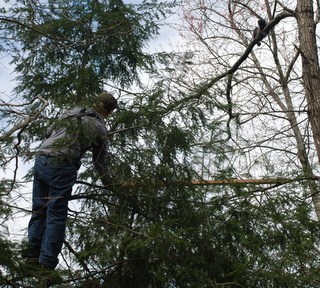W
e were ring-around-the-rosy children
They were circles around the sun
Never give up, never slow down
Never grow old, never ever die young
~ James Taylor
The first time I volunteered in a nursing home it was 1976 and I was 16 years old. I’d never been around so many elderly people in one place. My first night after working there I couldn’t sleep as images of the residents, how they lived, the lighting, and the way the place smelled fired through my imagination all night long.
In hind sight I can tell you that in 1976 in that place there were very few residents with dementia. Part of the campus was assisted living and where I worked was the nursing home. So its residents were folks who, in their elder years, had come to terms with how they would finish out their lives. Most of the residents in the nursing home started out in assisted living, coming to the nursing home when they needed the extra care.
I had one resident who was 41 years old and had multiple scleroses. I remember his age because even at 16, I knew 41 wasn’t that old. He was much younger than the other residents. He had a devoted wife who refused to divorce him, even though he wanted to take the high road and set her free. They had a daughter who was graduating college that year.
My maiden name was “Walls” and this particular resident loved my visits because he would then anticipate telling the next person who came to his room that he’d been talking to the five walls. I liked his sense of humor.
There was another resident, bedridden, who would keep me for over an hour, if I let her, regaling me with stories of her childhood. Her mother had died when she was young. She was then raised by an emotionally distant father and a step-mother who didn’t like her. The details she shared from her life came from an era my great-grandparents knew. It was fascinating listening to her.
There were other residents who were not confined to their beds, so I visited them at the side of their wheelchairs, reading to some, writing letters for others, and listening to one talk about her granddaughters – bragging on the blond one and dismissing the redhead! I once saw a photograph of the two and the redhead was actually prettier than the blond. But the blond had blond hair and that had won her a spot in her grandmother’s heart for life.
The following summer gave me fond memories of helping with parties, music, and a field trip to the zoo. I have no memories of working with dementia patients back then.
Presently, I work part time in a nursing home where the vast majority of the residents have some form of dementia. There are only a few who don’t have it. Working there in 2012 is a whole different ball game from 1976. Residents routinely insist that they have homes elsewhere and need help getting home. Or they have a job somewhere else that they need to get to. If you try to argue with them on the basis of reality, there are a number of responses you might receive.
The resident might get angry, insisting they’re right and you’re not only wrong, you’re stupid, rude, or insulting. The resident might become confused and get their feelings hurt. You may hear language you’ve never heard in your life coming from people who have never heard or said these words ever in their lives. You might get hit – even get your ears boxed. Or the resident might momentarily acquiesce only to pick up the very same conversation about where they work or live a moment later.
I use a technique called Validation, developed by Naomi Feil. It is more effective than another technique I’m familiar with called “therapeutic lying.” Working evenings, every time I bring an activity to an end, one resident says, “Well I don’t know how I’m going to get home tonight.”
I say, “Actually, you have a room right down that hallway.” Then I tell her the room number and assure her that her name is on the door and that she’ll recognize her belongings when she gets inside.
In my conversation with her I never confront her with the fact that she’s been living in this nursing home and had that room for many years now. When her question begins with a statement about how her house is right across the road, implying she merely needs help crossing the street; I never address that. I talk about her room at the nursing home as if this is something extra in her life and assure her that staying there this night is the thing to do. And every time we have this conversation my tone of voice communicates this is the first time we’ve had this conversation.
One night I realized I sounded like a cruise director as if the nursing home was a cruise ship, their rooms were their cabins, and with the end of the activity we’d just drawn the evening’s entertainment to a close.
These days with the rise of dementia, most of my conversations with residents at the nursing home involve using the Validation technique.
I’ve also learned something about dementia from my own mother who suffers from it.
Why dementia attacks the brain the way it does is random. What’s stolen from the person’s memory makes no sense. It isn’t just memories that go missing, how to behave so that social interactions are as successful as possible can disappear. It is that type of disappearance, even more than the missing memories, which steal a loved one right in front of your very eyes, ears, and heart.
When it comes to interacting with your own parent and his or her internal governor is taken by the dementia, you can hear painful and embarrassing things that deny or confirm the stories you’ve made up in your mind about your parent. If your parent was always supportive, you might hear non-supportive, even damaging, rhetoric aimed at you for the first time in your life. If your parent wasn’t there for you in any way or even abusive, you may see and hear things that make you want to indulge in some, “Oh, yeah, I just knew it!” type conversations with yourself or loved ones.
At fifty I still believed my mother and God were one! In other words, she seemed indomitable. I never, ever knew or understood the pain she’d suffered in childhood because of how her primary family members had treated her until, with the dementia, she got stuck in a loop processing how they’d made her feel all those years ago.
I knew it hadn’t been an easy childhood for her. But I did not know the extent to which her self-esteem and sense of worth had suffered or how she carried those negative limiting beliefs about her with her throughout her entire life. And then with the dementia, though she processed the memories and the feelings almost constantly, she could not help herself (nor could anyone else help her) get to the other side to experience new, positive, and life giving beliefs about herself.
Trying to teach Mom positive self-talk falls in the short term memory category that went missing a long time ago.
These days conversations are short. They cover a bare minimum of subjects. We talk about the weather and I answer her question about how Joseph’s doing many times in a single phone conversation as if it’s the first time. On the phone with her I realize in a manner of minutes that she’s anxious to get off the phone because, even though she can’t talk about it, she’s aware of her limitations and it causes her stress.
Sometimes, because I want to feel as though we had a real good visit and I also think my calls give my step-dad a bit of a break, I’ll turn the T.V. on to the same channel she’s watching and we’ll talk about what we see there. If she’s got the Animal Planet on, that’s fun.
How my mom is now isn’t who she was and it isn’t who she is. Her internal governor being gone doesn’t reveal anything about the real woman. If she had been able to process her family stuff throughout her adult years, I don’t know if that would have made a difference now. Although I wish she could have removed the tapes inside her head that told her she was less than and unworthy; when receiving therapeutic counseling became popular in the 1990’s, she was proud of not “needing” counseling back then. That proud part of her personality is still there and when she expresses it, we celebrate it.
Whenever a resident invites me into their room at the nursing home, I love to see pictures of them when they were younger hanging on the walls because it gives me insight into who they were when all their mental faculties were intact. When I practice the Validation technique and relate to the person I’ve seen in the photograph or the person I knew my mom to be, I get smiles and even laughter as they have an opportunity to feel seen and heard in a way that feels familiar to them.
Dementia is hard. It makes no sense. It is all around us. The number of people it affects is growing. As with all chronic and terminal diseases, it makes life with the patient all about them. Your own needs and desires get routinely swept aside.
If I may offer some advice born of my own experience ~
Whatever techniques you use to handle the loved ones in your life who have this disease, the answer is always, always love. The only thing to do is just love them.
Meet them where they are and when doing that makes you really uncomfortable, find someone to process the experience with afterwards. Get up close. Sit, bend, or squat so that you can make direct eye contact. Touch them. Squeeze a hand, pat a shoulder, give a hug, stroke their hair. Try to make sense of what’s being said and when you can’t, just hang in there.
You don’t have to feel sorry for them. If you do, don’t let feeling sorry for them keep you from connecting and don’t let it shut down acts of compassion. Just be present to them, follow your intuition; and if you make a mistake, you’ll probably get an opportunity for a re-do in the same conversation.
You’ll grow patience you never knew had and you’ll come to respect yourself for being there for them. Sometimes loving someone only happens in the ways they are capable of receiving it. But when it’s all said and done, it is all about the love and that is all that matters.











